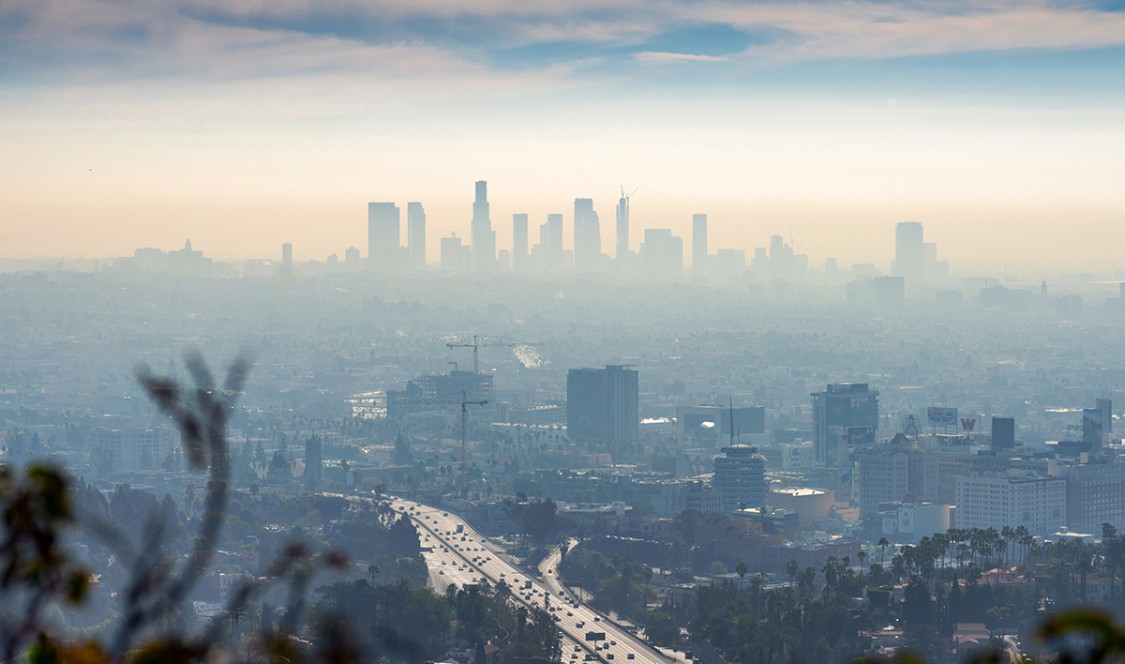Many Angelenos accustomed to traffic congestion will never forget the surreal images of their sprawling city’s vacant freeways and streets. In March of 2020, shortly after Los Angeles County imposed lockdown measures due to the coronavirus outbreak, once-crowded thoroughfares emptied of commuters. Meanwhile, similar scenes played out across the globe, as countries implemented their own lockdowns.
In response to the hard stop on most urban activities, Franck Fu, a post-doctoral fellow with CMC’s EnviroLab Asia who holds a PhD in atmospheric chemistry, saw an opportunity for impactful research. He teamed up with CMC’s Kathleen Purvis-Roberts, professor of chemistry and environmental science; and Branwen Williams, associate professor of environmental biology, and the trio began to assess the effects of COVID-19 lockdowns on air quality.
They detailed their findings in, “Impact of the COVID-19 Pandemic Lockdown on Air Pollution in 20 Major Cities around the World,” an article published in the journal Atmosphere in November.
“Air pollution is a global issue, especially in urban areas where road traffic and industry are more intense,” Fu said. “Most air pollutants are associated with the development and/or aggravation of respiratory diseases that reduce lung function, particularly in vulnerable populations with pulmonary disease or asthma. By focusing on air quality, we are also focusing on human health and quality of life.”
As transportation and industry “are the main sources of air pollution,” the team wanted to know how much would the reduction of these activities actually reduce air pollution? Further, according to Fu, the researchers wondered, “Will this reduction be the same for all criteria of air pollutants? As different countries applied different lockdown policies, did the lockdown policies play a key role? Are there other factors responsible for the air quality changes during the lockdown?”
To find out, the team employed Air Quality Index (AQI) data to estimate the change in air quality in 20 major cities on six continents. For each city, they compared AQI data during lockdown period to the same period of previous years.
The results show significant reduction of most air pollutants (Nitrogen dioxide, Sulfur dioxide, Carbon monoxide, and particulate matter). “Lockdown policies played key roles in this air quality improvement, especially in the significant decrease of Nitrogen dioxide in all 20 major cities in the world,” Fu said, adding that “the reduction of Nitrogen dioxide is higher in countries and cities with stricter lockdown policies.”
The team also noticed that other factors besides lockdown policies furthered the reduction in air pollution. “Preexisting local environmental policy regulations also contributed to an emissions decline, especially in China, where the air quality has been improving,” Fu said.
By contrast, Fu noted, the changes in ground-level ozone were not significant in most cities. “These results are not surprising,” he said. “But it’s interesting to discover that ground-level ozone doesn’t decrease during the lockdown. Keep in mind that in southern California, the main air pollution is ground-level ozone.”
“This is an extremely important study on the impact of COVID-19 lockdowns on air pollution that has a global dimension,” said Albert L. Park, CMC associate professor of Pacific Basin Studies and co-principal investigator, EnviroLab Asia. “Moreover, it highlights the dynamic and wide-encompassing scientific research that is supported by EnviroLab Asia.”
Next up for the research team? “We are looking closely at the impact during the COVID-19 era on air pollution in the U.S. and in the state of California, especially focused on the reopening period and some rural areas,” Fu said.
— Anne Bergman

